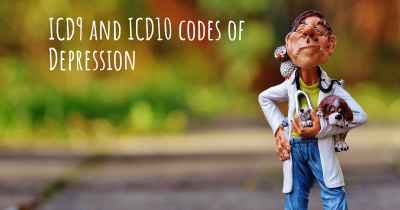What is the life expectancy of someone with Depression?
Life expectancy of people with Depression and recent progresses and researches in Depression

The life expectancy of someone with depression can be affected by various factors. Depression is a mental health condition that can lead to a range of physical and emotional symptoms. It is important to note that depression itself does not directly determine life expectancy. However, individuals with depression may be at a higher risk for certain health issues that can impact longevity. These include cardiovascular diseases, substance abuse, and self-harm. Seeking proper treatment, such as therapy and medication, can significantly improve outcomes and overall well-being. It is crucial for individuals with depression to prioritize self-care, maintain a healthy lifestyle, and seek support from healthcare professionals.
Depression is a serious mental health condition that affects millions of people worldwide. It is characterized by persistent feelings of sadness, hopelessness, and a loss of interest in activities. While depression itself may not directly impact life expectancy, it can have significant effects on a person's overall health and well-being, which can indirectly influence their longevity.
Impact on Physical Health:
Depression is not just a mental health disorder; it can also manifest in physical symptoms. People with depression often experience changes in appetite, sleep disturbances, and a lack of energy. These physical symptoms can lead to unhealthy lifestyle choices, such as poor diet, lack of exercise, and substance abuse, which can have long-term consequences on overall health.
Furthermore, depression has been linked to various chronic health conditions. Research has shown that individuals with depression are at a higher risk of developing cardiovascular diseases, diabetes, obesity, and certain types of cancer. These comorbidities can significantly impact life expectancy if not properly managed.
Impact on Mental Health:
Depression can also have a profound impact on a person's mental health. It can lead to feelings of isolation, low self-esteem, and a sense of hopelessness. These emotional struggles can make it challenging for individuals to seek help, engage in healthy coping mechanisms, and maintain social connections.
Untreated depression can increase the risk of suicide, which is a leading cause of premature death worldwide. It is crucial to recognize the signs of depression and provide appropriate support and treatment to individuals at risk.
Treatment and Support:
While depression can have a significant impact on a person's life, it is essential to emphasize that it is a treatable condition. Seeking professional help is crucial for managing depression effectively. Treatment options may include therapy, medication, or a combination of both.
Additionally, a strong support system plays a vital role in the recovery process. Friends, family, and loved ones can provide emotional support, encouragement, and understanding. Support groups and community resources can also offer valuable assistance to individuals living with depression.
Improving Life Expectancy:
Although depression can present challenges, there are steps individuals can take to improve their overall well-being and potentially increase their life expectancy:
1. Seeking Treatment: It is crucial to reach out to a healthcare professional for an accurate diagnosis and appropriate treatment plan. Therapy and medication can help manage symptoms and improve quality of life.
2. Adopting Healthy Lifestyle Habits: Engaging in regular physical activity, maintaining a balanced diet, and getting enough sleep can have a positive impact on both physical and mental health. These habits can help reduce the risk of developing chronic illnesses and improve overall well-being.
3. Building a Support Network: Surrounding oneself with supportive and understanding individuals can provide a sense of belonging and emotional support. Participating in support groups or seeking therapy can also be beneficial.
4. Practicing Self-Care: Taking time for self-care activities, such as engaging in hobbies, practicing relaxation techniques, or pursuing creative outlets, can help reduce stress and improve overall mental well-being.
5. Staying Connected: Maintaining social connections and nurturing relationships with loved ones can provide a sense of purpose and support during difficult times. It is important to reach out to others and not isolate oneself.
Conclusion:
While depression itself may not directly impact life expectancy, its effects on physical and mental health can have long-term consequences. However, with proper treatment, support, and healthy lifestyle choices, individuals with depression can improve their overall well-being and potentially increase their life expectancy. It is crucial to raise awareness about depression, reduce stigma, and ensure that those affected receive the necessary support and resources to lead fulfilling lives.
Posted May 24, 2017 by Helen 1500
Posted Sep 14, 2017 by Karima 5050








